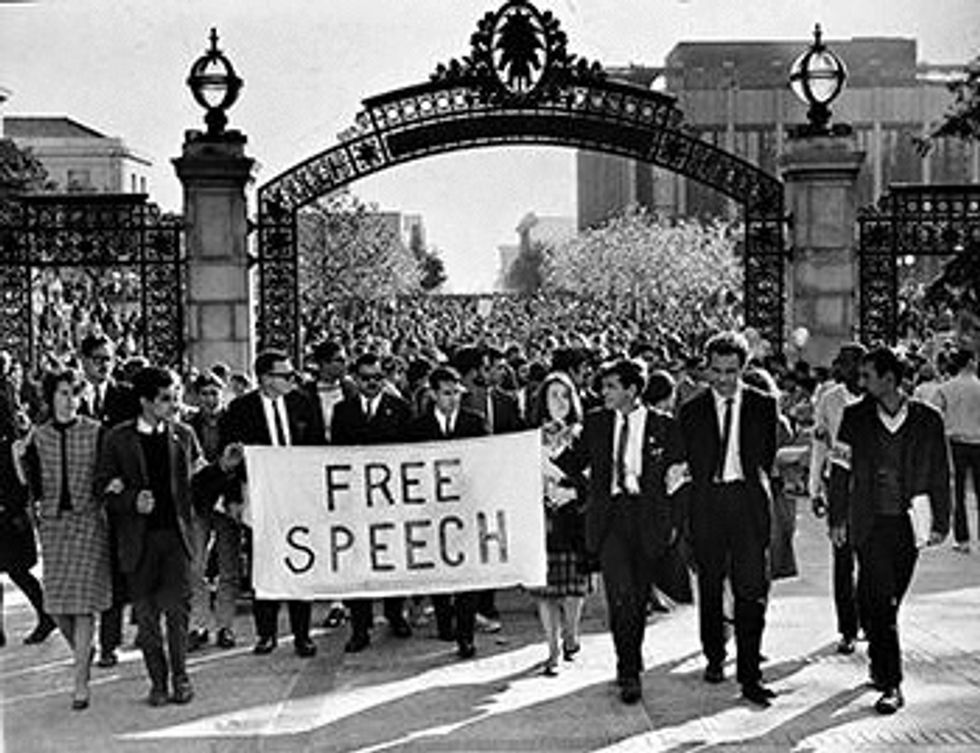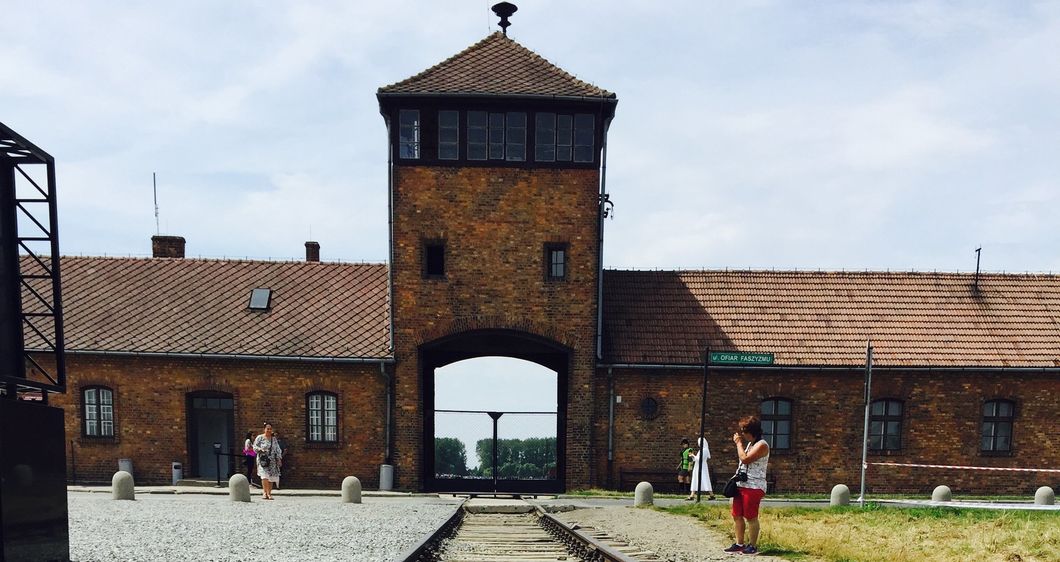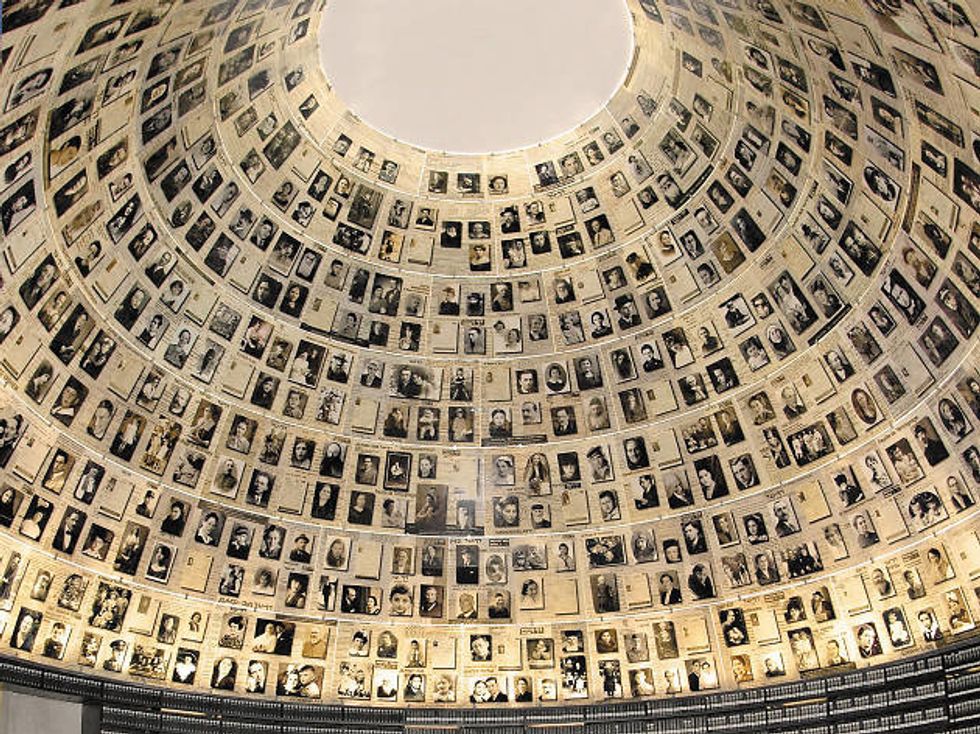Throughout all of history, the United States is arguably the freest country of the entire world. With democracy engraved into every word of its foundational documents, the United States is a nation where essential freedoms are automatically granted to you, and one of which is freedom of speech. Essentially this basic freedom ensures that an individual has a right to say whatever he or she wants; however, there are certain restrictions. For example, the "You can't shout fire in a crowded theatre" implies that one's freedom of speech extends as far as possible until it negatively impacts, or harms, another individual.
Setting aside history and instances of what is permissible under the First Amendment, words are important. Communication is key to connecting with others and expressing yourself beyond the thoughts within your head and the ideologies that you believe in. With this in mind, people tend to say awful things. As I described earlier, their words may be legal under the First Amendment, but they could still be immoral and unjustifiable.

A prime example of a horrible word to call someone is a "Nazi". I do not mean that using the word in itself to describe members of the Nazi Party from Germany or Neo-Nazis is wrong because that is simply a matter of calling someone by definition what they are. What I mean is senselessly labeling someone a "Nazi" without tangible proof that they are or support Nazi ideology.
We see the word "Nazi" thrown carelessly all over social media. In the world of politics, "Nazis" or "Nazi Germany" seems to be the most common comparison I hear to any sort of injustice or inequity that people express. And while these critics have every right to call people "Nazis", I have noticed that senselessly calling someone who disagrees with you a "Nazi" is both ignorant and disrespectful.
Let's start with ignorance. It is fair to assume that many people who are quick to call someone a "Nazi" possess very little or poor understanding of Nazi Germany; it is more reasonable to assume that those same people probably cannot correctly define fascism. Shouldn't you know what a fascist is before you go on a Twitter rant about how America is turning into Nazi Germany? I have seen too many instances where one compares someone else to a "Nazi" yet never mentions proof or a historically accurate comparison to actual historical events.
Lucky for those who forgot learning about World War II in their high-school American History class, they can flock to the library, search Amazon, or even pull up Google on their computers to re-educate themselves on what Nazi Germany actually was rather than what they think it was like.
Along with searching the Internet for factual information, visit a museum. The Holocaust Museum in Washington D.C. contains the most heart-wrenching and intellectually stimulating exhibits that detail the rise of Nazi Germany to the Holocaust to the establishment of Israel after World War II. As someone who has visited this museum, I remember leaving in complete silence; both my heart and my mind were emotionally changed as I walked throughout the museum in memoriam of the victims of this horrific time in history.
Additionally, the Yad Vashem Holocaust Memorial Museum in Israel is one of the most emotional places I have ever been to. Not only do the exhibits there inform you with knowledge but also provide emotional testimonies from actual Holocaust survivors, which leave you in a mindful state of reverence as you leave.
Moreover, if you really want to know what a "Nazi" is, what the "Nazis" did, and feel the weight of their utter barbarism, visit a concentration camp. Nearly two years ago, I walked through the gates of Auschwitz-Birkenau concentration, or death, camp, and writing this even gives me goosebumps. I cannot explain what I felt like as I walked the perimeter of the camp, overlooking the foundations of the barracks, witnessing the remnants of the gas chambers, seeing the barbed wires that used to trap prisoners within its haunting walls. I cannot put into words what it feels like to walk the perky, rock ground in my sneakers, knowing that millions of people were forced to walk barefoot in this same exact spot. Although this thought still sends chills down my spine, I know that visiting Auschwitz-Birkenau gave me a sort of mindfulness about what "Nazis" are and how they treated people.

With that mindfulness, I knew that throwing around the word "Nazi" like some childish insult was disrespectful to those who actually experienced Nazi Germany in their lifetime. Think about the Holocaust survivors, about the Holocaust victims, about those who experienced Nazi Germany through their own eyes. While the number of people who actually experienced fascism in Germany decreasing every year, we cannot forget their stories. While respecting the survivors and remembering the victims, we need to realize, as a society, that common comparisons to Nazi Germany are not only disrespectful to them but also inappropriate. "Nazi" should not be our go-to response to something we disagree with. Swastikas should not be symbols that are commonly drawn and referenced to. Holocaust jokes are not something that we should ever think as comedic.
If people keep calling each other "Nazis", how will we be able to know when an actual Neo-Nazi or another awful totalitarian dictator comes to power on our global stage? Perpetuating the ignorant and disrespectful rhetoric of labeling anyone who disagrees with you politically a "Nazi" creates a carbon copy of "The Boy Who Cried Wolf", or "The Boy Who Cried 'Nazi'"
While freedom of speech is a necessary privilege, it is also important to utilize that privilege correctly and respectfully. By becoming mindful, in a sense maybe even "woke", about the historical background about the rise of fascism, Nazi Germany, and the effects of the Holocaust, maybe we can begin to have intellectual conversations about these serious topics rather than assuming anyone who disagrees with you is a "Nazi".




 Today I am
Today I am  Go to the gym
StableDiffusion
Go to the gym
StableDiffusion
 Listen to more music
Photo by
Listen to more music
Photo by  Have more patience
StableDiffusion
Have more patience
StableDiffusion














